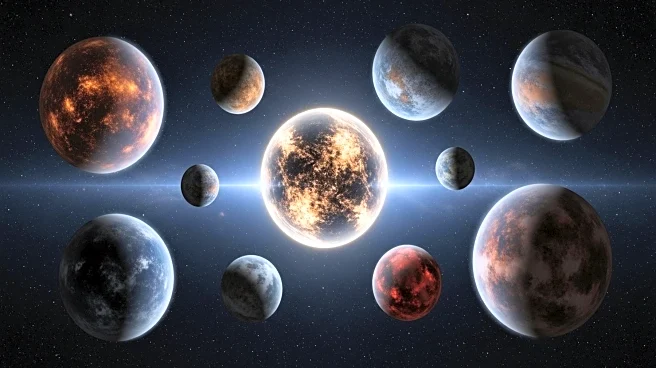What's Happening?
NASA has announced the confirmation of 6,000 exoplanets, marking a significant milestone in the field of astronomy. The discovery, facilitated by missions like Kepler and TESS, highlights the diversity of planets beyond our solar system, including hot Jupiters and ultra-short period planets. The majority of detections have been made using indirect methods such as the transit and radial velocity techniques. Despite the challenges posed by vast distances and starlight obfuscation, technological advances continue to drive the search for exoplanets, with a focus on identifying Earth-like worlds.
Why It's Important?
The confirmation of 6,000 exoplanets underscores the progress in understanding planetary systems and the conditions under which planets form. This milestone provides valuable insights into the nature of our solar system and the potential for habitable planets. The diversity of discovered exoplanets challenges existing models and prompts further exploration into their formation and characteristics. The findings contribute to the broader quest to determine if life exists beyond Earth, influencing scientific priorities and funding in space exploration.
What's Next?
Future missions, such as the Habitable Worlds Observatory and China's Earth 2.0 Space Telescope, aim to discover more Earth-like exoplanets and study their atmospheres in detail. The focus will shift towards targeted searches for habitable planets, utilizing advanced technologies like coronagraphs and starshades. As the list of exoplanet candidates grows, the scientific community will continue to collaborate on confirming these planets and exploring their potential for life. The search for biosignatures remains a key objective in exoplanet science.
Beyond the Headlines
The discovery of diverse exoplanets challenges traditional notions of planetary formation and composition, prompting a reevaluation of existing theories. The findings highlight the importance of technological advancements in overcoming observational challenges and expanding our understanding of the universe. The search for exoplanets also raises philosophical questions about humanity's place in the cosmos and the possibility of life beyond Earth.











